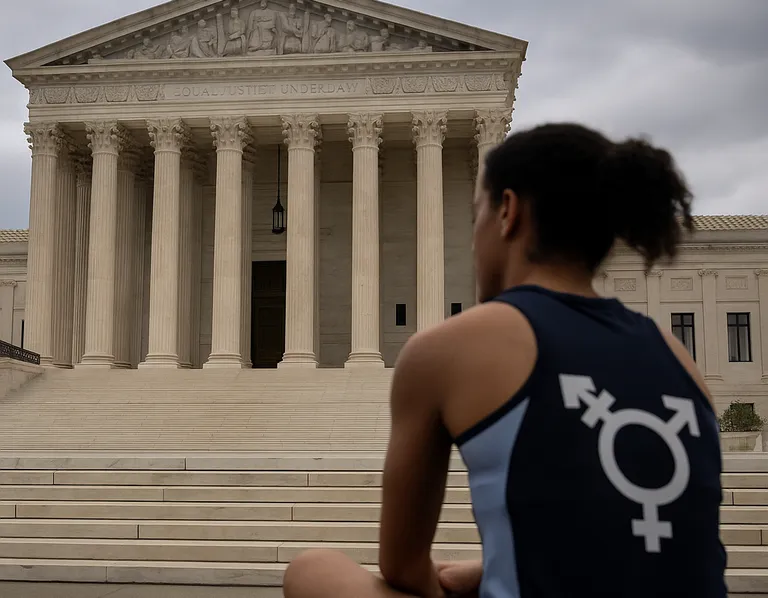In a decision that could shape the future of sports and transgender rights in America, the U.S. Supreme Court announced it will hear two cases challenging the constitutionality of state laws banning transgender athletes from competing on girls’ and women’s sports teams.
The move signals the court’s return to the frontlines of the ongoing cultural and legal debate surrounding gender identity, equality, and fairness in athletics.
⚖️ The Legal Cases at Stake
The justices agreed to review two separate cases:
- A lawsuit brought by a transgender high school athlete in West Virginia, who was barred from competing in track and field events.
- A challenge to Idaho’s law, which prohibits transgender women and girls from participating in sports consistent with their gender identity.
Both lower courts delivered conflicting rulings:
- One upheld the ban as a matter of fairness in female athletics.
- The other deemed it unconstitutional under Title IX and the Equal Protection Clause.
🧠 What’s at the Heart of the Issue?
The central legal questions include:
- Whether transgender bans violate federal civil rights protections
- How states define “biological sex” vs. “gender identity” in sports participation
- Whether student-athletes have a constitutional right to compete in accordance with their gender identity
Supporters of the bans argue that biological differences create unfair advantages in female competition.
Opponents claim the laws are discriminatory, stigmatizing, and harmful to transgender youth.
🧑⚖️ Why It Matters
This is the first time the Supreme Court has agreed to rule directly on the legality of transgender sports bans — setting the stage for a decision with nationwide impact.
A ruling in favor of the bans could:
- Solidify similar laws in over 20 U.S. states
- Limit access to school sports for transgender youth
A ruling against the bans could:
- Invalidate existing state legislation
- Expand the rights of transgender athletes under federal law
🌍 National Reaction
Civil rights groups and athletic organizations are watching closely.
- The ACLU, which represents one of the student plaintiffs, called the court’s decision to hear the cases “a crucial moment for trans youth in America.”
- Conservative lawmakers praised the move as a chance to “protect fairness in women’s sports.”
The justices are expected to hear oral arguments later this year, with a ruling likely in early 2026 — just months before the next presidential election.
By ✍️ Yorlinda Ramirez - MicuPost Team



